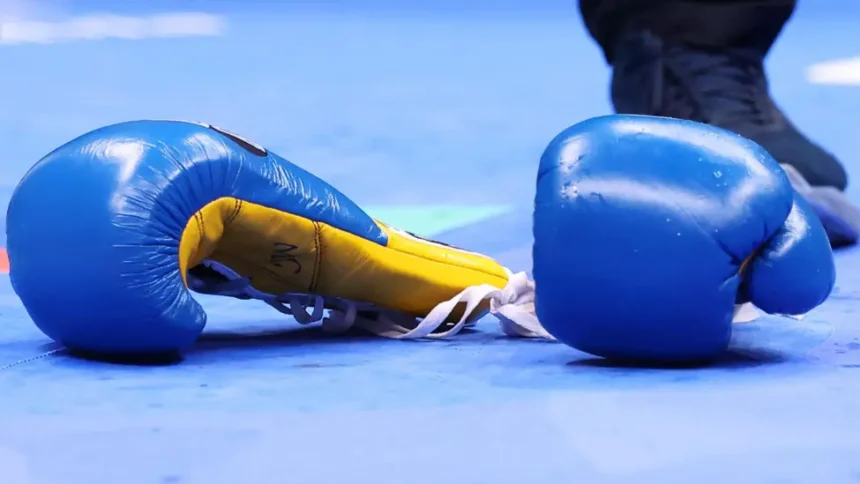In a heartbreaking incident that has sent shockwaves through the sports community, Nigerian boxer Ayo “The Lion” Oluwaseun tragically passed away after collapsing during a professional bout in Lagos on Saturday night. The 28-year-old lightweight fighter was gaining momentum in the match when he suddenly fell to the canvas, prompting immediate medical attention from ringside personnel and later paramedics.
Oluwaseun’s collapse occurred in the seventh round of a scheduled ten-round fight against his opponent, Bright Chukwudi. Eyewitnesses reported that he appeared to be in good spirits before the start of the bout. However, as the fight progressed, the situation took a disturbing turn. Despite showing signs of exhaustion, Oluwaseun pressed on, trying to land significant punches against Chukwudi. Moments later, he fell to the ground, unable to get back up.
Medical staff raced into the ring to provide emergency care, with commentators conveying their concern in real-time. Attending doctors initially suspected a severe case of dehydration or heat exhaustion, common ailments for boxers due to the physically demanding nature of the sport. Nonetheless, the extent of Oluwaseun’s condition soon escalated.
He was quickly transported to the nearest hospital, where he was pronounced dead shortly after arrival. The cause of death has yet to be determined, pending an autopsy, but initial reports suggest the possibility of a cardiac event, which has become increasingly recognized as a critical risk in professional sports.
The tragedy has not only shaken the boxing community in Nigeria but also raised questions about athlete health and safety protocols within the sport. Experts highlight that similar incidents, though rare, have been recorded in boxing and other high-intensity sports. Research published in the Journal of Sports Sciences indicates that athletes, particularly in combat sports, may unknowingly carry underlying health issues, such as undiagnosed heart conditions, which can lead to fatal consequences.
In light of this incident, sports authorities, including the Nigerian Boxing Federation, are under pressure to reassess and strengthen health screening measures for professional athletes. Current protocols may not be comprehensive enough to catch dangerous health risks, including those associated with intense physical exertion and high impacts.
“Boxers are warriors, but they shouldn’t be sent into battle unprepared,” said Dr. Chinedu Okafor, a sports medicine specialist. “Regular health check-ups, especially cardiac screenings, could be life-saving for many young athletes stepping into the ring.”
Oluwaseun, born and raised in Lagos, was known for his fierce determination and relentless spirit. He had a growing reputation in the Nigerian boxing scene and was seen as a potential contender for the national championship. His sudden demise has not only devastated his family and friends but has also sparked an outpouring of tributes across social media from fans and fellow fighters alike.
In a post on his official social media channels, former champion and mentor to Oluwaseun, Henry “The Hammer” Igbikwe, expressed his sorrow: “The ring has lost a champion today. Rest in peace, dear brother. Your fight inspired many, but we must fight for our health first.”
As discussions continue regarding the need for rigorous health evaluations in boxing, the passing of Ayo Oluwaseun serves as a solemn reminder of the risks athletes face and the importance of safeguarding their well-being. As the boxing world prepares to honor his memory, many hope that this tragedy will lead to essential reforms in the sport to protect future fighters from similar fates.
Email Us on editorial@nnafrica.com













